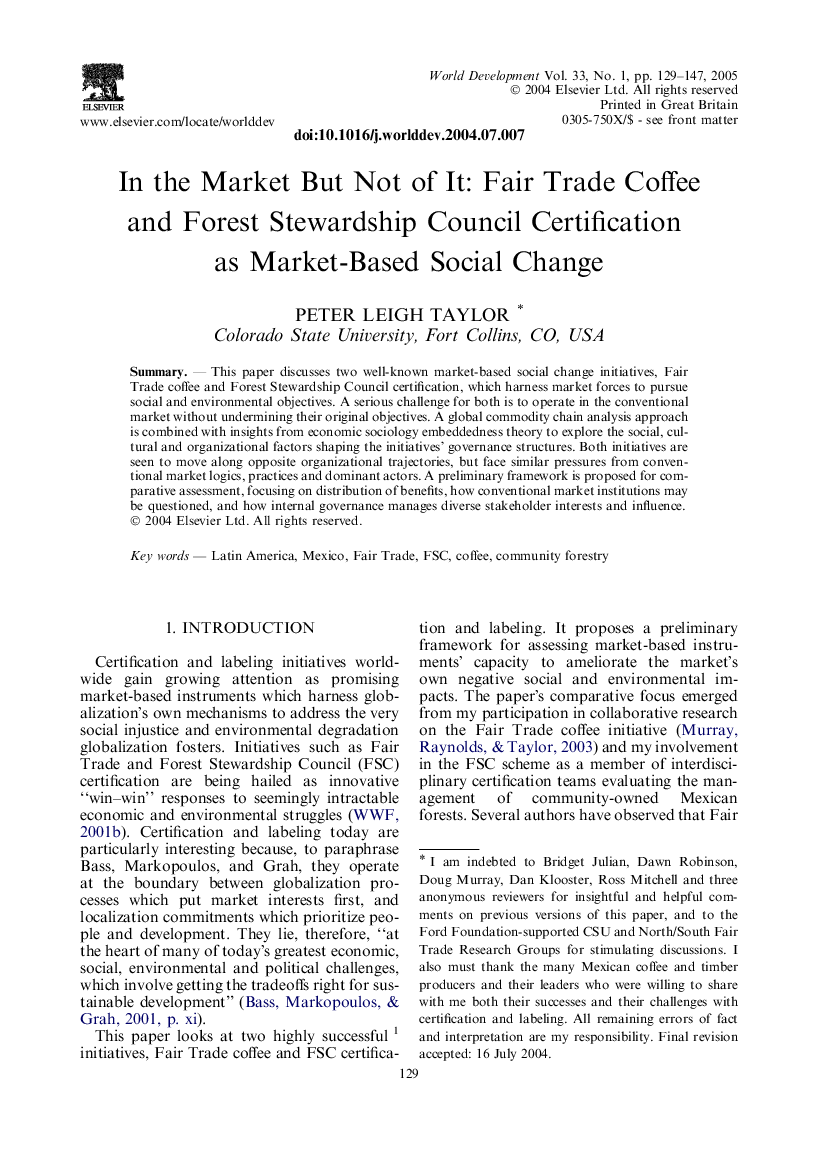| Article ID | Journal | Published Year | Pages | File Type |
|---|---|---|---|---|
| 10486370 | World Development | 2005 | 19 Pages |
Abstract
This paper discusses two well-known market-based social change initiatives, Fair Trade coffee and Forest Stewardship Council certification, which harness market forces to pursue social and environmental objectives. A serious challenge for both is to operate in the conventional market without undermining their original objectives. A global commodity chain analysis approach is combined with insights from economic sociology embeddedness theory to explore the social, cultural and organizational factors shaping the initiatives' governance structures. Both initiatives are seen to move along opposite organizational trajectories, but face similar pressures from conventional market logics, practices and dominant actors. A preliminary framework is proposed for comparative assessment, focusing on distribution of benefits, how conventional market institutions may be questioned, and how internal governance manages diverse stakeholder interests and influence.
Related Topics
Social Sciences and Humanities
Economics, Econometrics and Finance
Economics and Econometrics
Authors
Peter Leigh Taylor,
